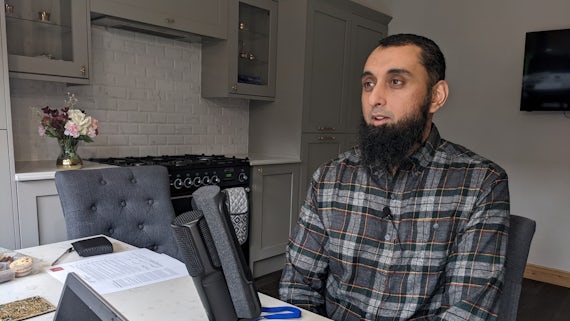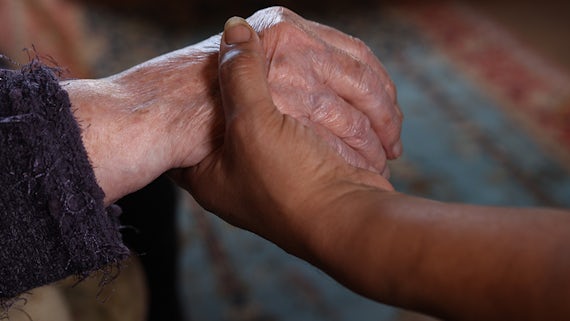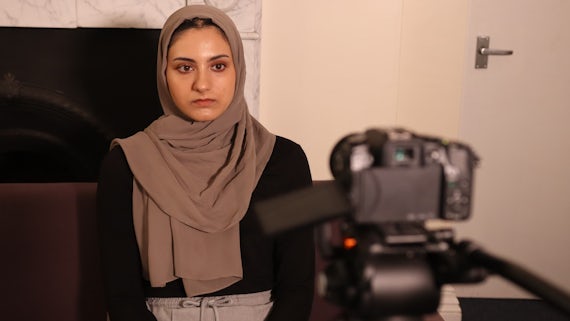
Understanding mental health in Muslim communities
Promoting a better understanding of mental health problems in Muslim communities
Mental health problems affect Muslims in Britain more than other faith communities, yet Muslims are less likely to access formal support for these problems – and when they do, their rates of improvement are lower.
Researchers from our Centre for the Study of Islam in the UK are helping to reduce these inequalities through promoting a better understanding of Islam by mental health practitioners, and a better understanding of mental health by religious practitioners.
To achieve this, the team have created new free online course, ‘Understanding Mental Health in Muslim Communities’, and have secured accreditation from the Royal College of Psychiatrists. Produced and hosted on the FutureLearn platform with the support of our Learning and Teaching Academy, the course has the potential to reach thousands of learners worldwide.

The project seeks to address the challenges faced by Muslims whose mental health needs are not being met.
The need for accessible mental health information
Growing evidence suggests that some mental health problems, such as depression, affect British Muslims more than other faith communities. Muslims in Britain are under-referred to therapy services for mental health problems, and when Muslims do access mental health services, their rates of improvement are lower. All of these factors pose serious challenges for Muslims whose mental health needs are not being met.
In this landscape, there is a significant appetite among mental health professionals for more information about Muslim mental health – something that our researchers have seen first-hand.
“In 2018 we collaborated with Mind Cymru to organise a seminar on Islam and mental health,” says project lead Dr Asma Khan. “The interest that seminar generated was huge – it was one of our most well-attended seminars, and had close to thirty thousand views on YouTube. To us, it signalled that there’s a real need to provide accessible information to Muslim and non-Muslim practitioners around Muslim mental health.”
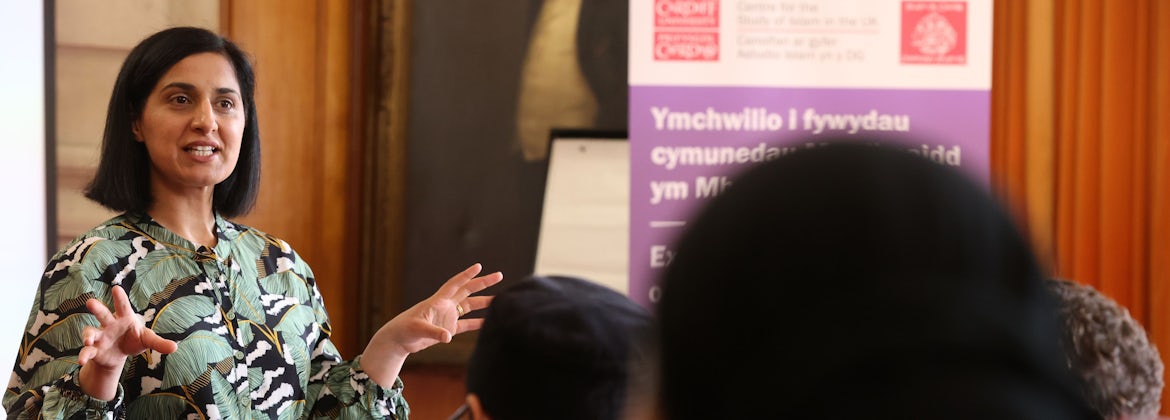
Dr Asma Khan speaking at the launch of the Understanding Mental Health in Muslim Communities course.
Promoting conversation about mental health
The ‘Understanding Mental Health in Muslim Communities’ course is targeted at employers and organisations in the mental health sector, as well as frontline health, social care, pastoral, and religious practitioners.
“The interesting thing about the course is that it is aimed towards both Muslim and non-Muslim practitioners,” says Dr Khan. “At every stage of the course, there are opportunities for learners to discuss with each other. We hope to create a space for Muslims and non-Muslims to get used to speaking with each other and being in conversation.”
“Something we’ve learned from all the contributors to the course, and all our research, is that improving dialogue between different groups who provide mental health support in these communities has a real benefit.”
“We want to get Muslim practitioners to think about how they can encourage people to talk about mental health in a religious setting. For example, how can an imam in a mosque make a person feel comfortable talking about mental health?”
“At the same time, we want to get mental health practitioners to make it easy and comfortable for a person with mental health problems to talk about their religion, faith and spirituality.”
Watch the Understanding Mental Health in Muslim Communities course video
Adding real value for practitioners
Getting the course accredited by the Royal College of Psychiatrists is a key part of the project. For learners, their participation in the course will be accredited against internationally recognised quality standards, making it a valuable record of professional development.
“Health and social care practitioners have had a tough run during the pandemic,” says Dr Khan. “Research shows that their opportunities for Continuing Professional Development in particular have suffered. We want the course to be relevant but also to have real value for their professional development.”
Through giving a greater level of professional value and recognition to the course, the team also expects that accreditation will increase levels of uptake and completion.
“The course being accredited means line managers and supervisors are more likely to allow practitioners to take the course during their working hours, rather than having to find time to take the course at weekends or in the evenings,” says Dr Khan.
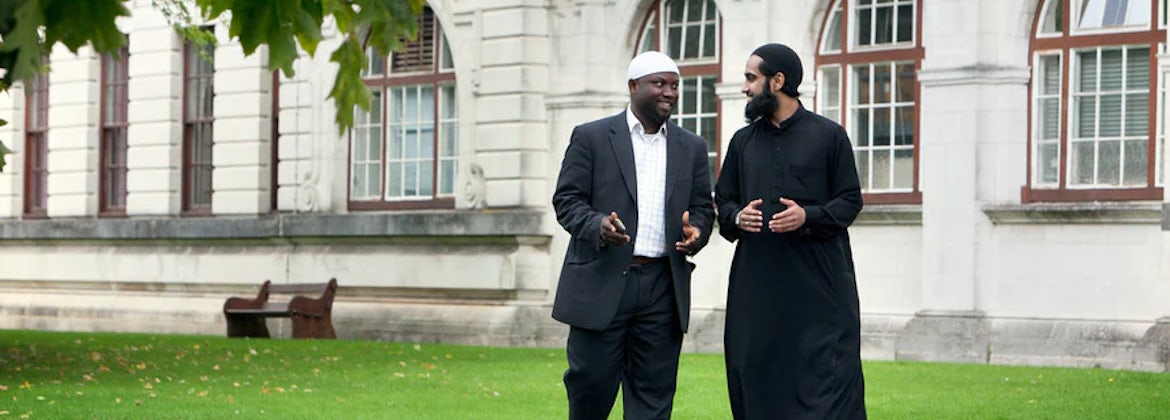
The accreditation by the Royal College of Psychiatrists makes the course a valuable record of professional development for mental health practitioners.
Looking to the future
The project team will monitor the impact accreditation by the Royal College of Psychiatrists has had on course uptake and completion, as well as collecting feedback from partners and other stakeholders.
Teams from our Centre for the Study of Islam in the UK and our Learning and Teaching Academy will use this information to inform the development of FutureLearn and other online courses across the university.
The team hopes that closer engagement with the Royal College of Psychiatrists through the accreditation process will also provide opportunities for further training or research, to further support those engaging with mental health problems.
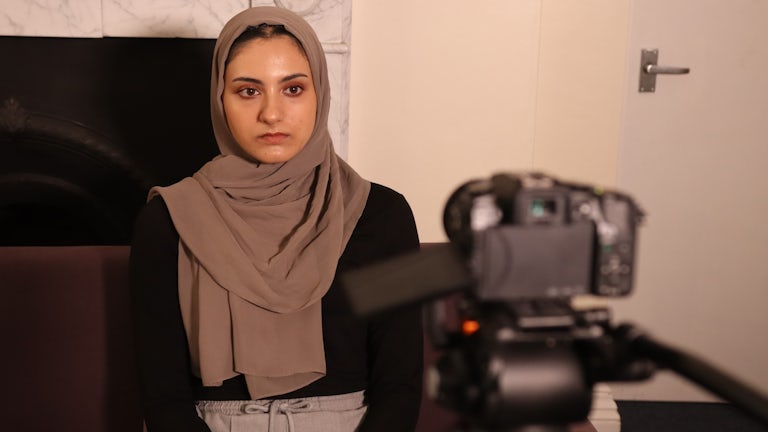
Our local community projects
We use our wide range of expertise to support and deliver impactful community led projects alongside student and staff volunteers.


